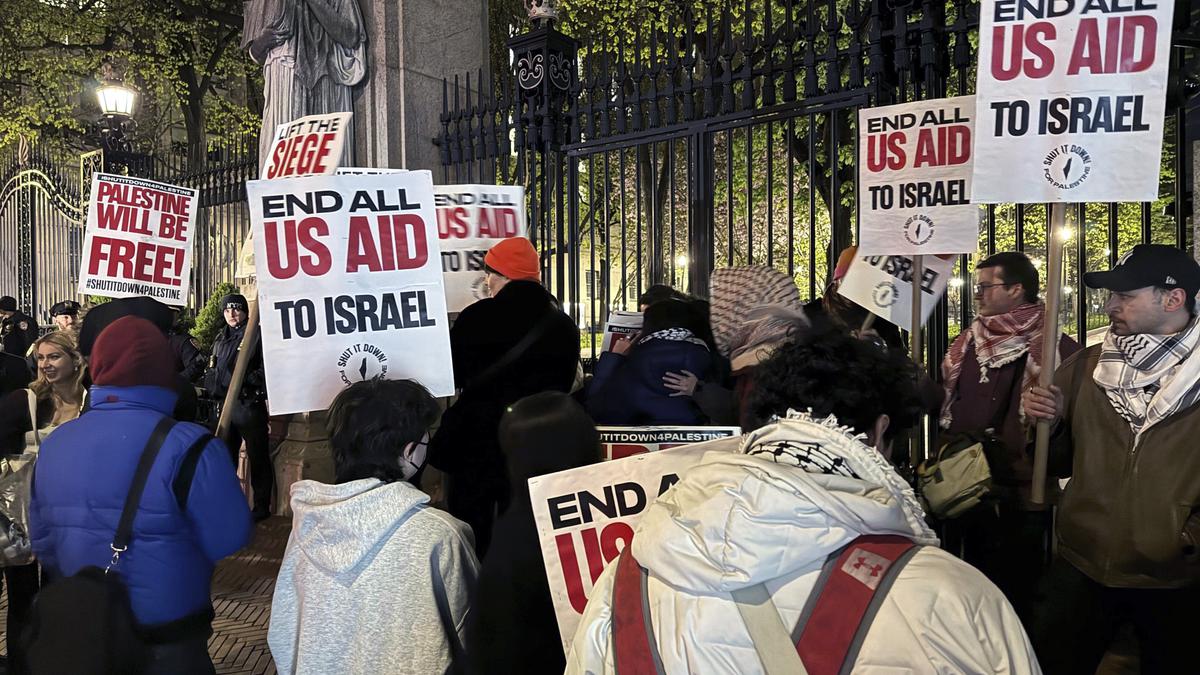
Why students are protesting across U.S. campuses? | Explained Premium
The Hindu
Several U.S. campuses, taking inspiration from the protests in Columbia, have peacefully escalated their protests, which have also faced repression from respective university administrations. The protests are an escalation of the demonstrations going on in U.S. campuses ever since the October 7 Hamas attacks on Israel and Israel’s subsequent bombardment of the Gaza Strip.
On April 18, more than 100 pro-Palestinian protestors who were camped out in tents in Columbia University, New York, were arrested by the police. Since then, similar encampments and protests have risen across U.S. campuses, including in New York University, Yale University and the University of Texas. These protests are an escalation of the demonstrations going on in U.S. campuses ever since the October 7 Hamas attacks on Israel and Israel’s subsequent bombardment of the Gaza Strip.
What happened?
Columbia University president Minouche Shafik called in the NYPD to arrest the camping students a day after her Congressional hearing with the U.S House Committee on Education and the Workforce. The hearing was to learn more about the University’s efforts in countering anti-Semitism. Similar hearings had happened on December 5, 2023 with the presidents of the Universities of Pennsylvania, Harvard and Massachusetts, after which presidents of Pennsylvania and Harvard resigned amid criticism of their “inaction” in handling rising anti-Semitism and Islamophobia on campuses after the October 7 attacks. In a similar pattern, Ms. Shafik was also questioned on the university’s inaction to stop anti-Semitic rhetoric on the campus and has faced calls for resignation from various quarters, particularly from New York’s Republican Congressional delegation.
In her latest statement on April 23, Ms. Shafik had given a deadline for protestors to reach a peaceful agreement with the University. She warned that if the talks were not successful, “we will have to consider alternative options for clearing the West Lawn and restoring calm to the campus so that students can complete the term and graduate”. Since then, discussions have been ongoing and the deadline extended twice.
Several campuses, taking inspiration from the protests in Columbia, have peacefully escalated their protests, which have also faced repression from respective university administrations. On April 25, more than 30 people were arrested at a protest held at the University of Texas.
What are the protests about?
On October 7, 2023, Hamas attacked Israel, killing about 1,200 civilians and taking more than 250 people hostage, following which Israel commenced its invasion of the Gaza Strip, killing over 34,000 people, a vast majority of them women and children. Protests have been going on in universities ever since, calling for a permanent ceasefire. These protests peaked last week when students of Columbia started camping out in front of the university campus lawn, creating, as they call it, a ’Gaza solidarity encampment’.













